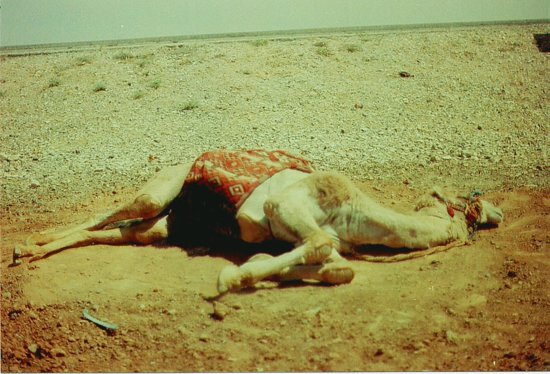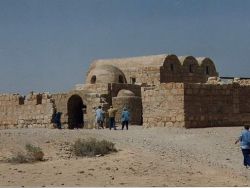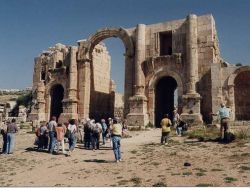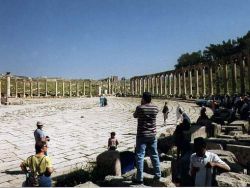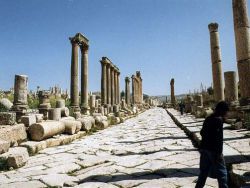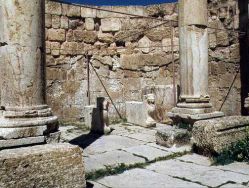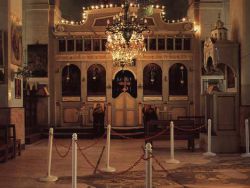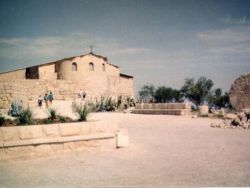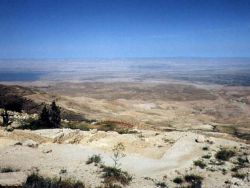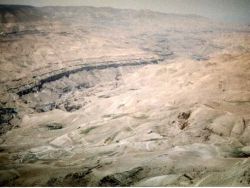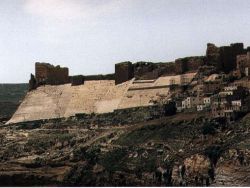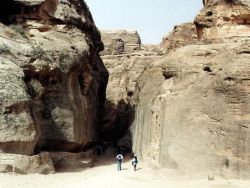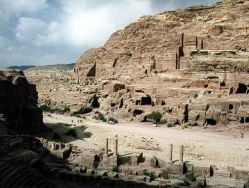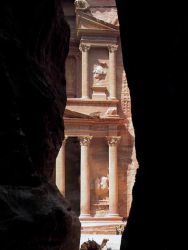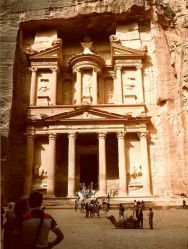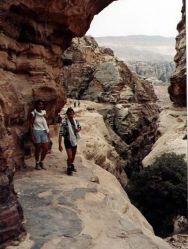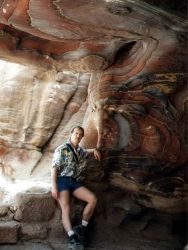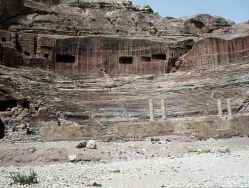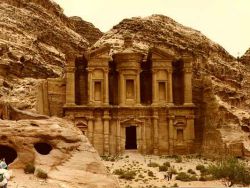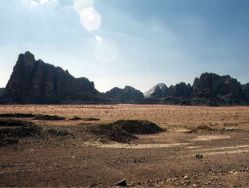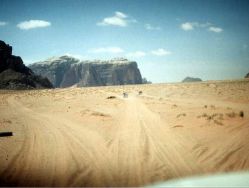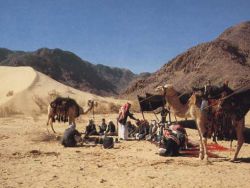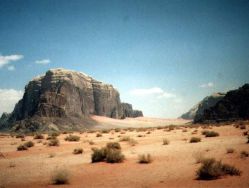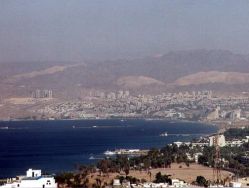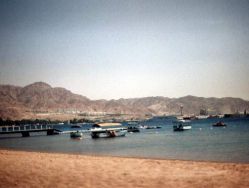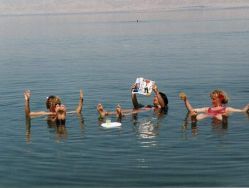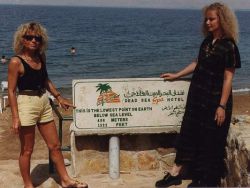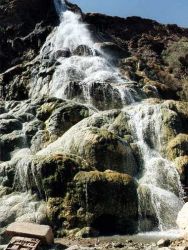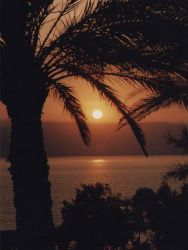Jordan - On the traces of Moses and King David
Come with me into the haschemit kingdom of Jordan. The presence and the past tense lies close together here. Walk on the traces of Moses and King David as well as the Ammonites, Nabataeer and all the other ancient peoples between red sea and dead sea.
The breath of adventure blows by the fantastic desert world of the Wadis and rock oceans in the empire of the Bedouins, there, where Lawrence of Arabia passed.
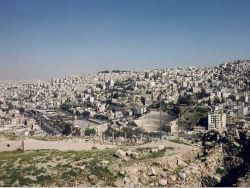
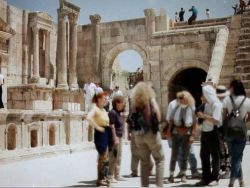 The starting point of our excursions is Amman, the "white town", the capital and king residence built on seven hills.
The starting point of our excursions is Amman, the "white town", the capital and king residence built on seven hills.
Amman is built up from the city of Philadelphia and shows witnesses to this past tense certainly today. The amphitheater in the center can be recognized well from the hills of the town. There is an active hustle and bustle here the whole day. Events regularly take place in the evening hours.
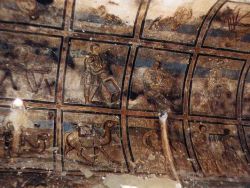
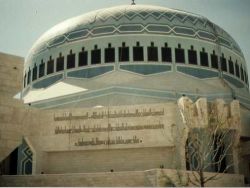
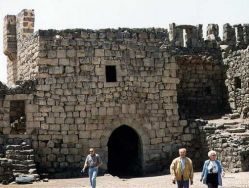
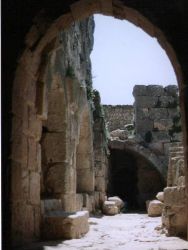
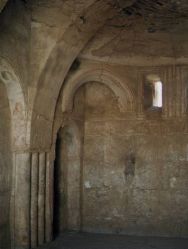
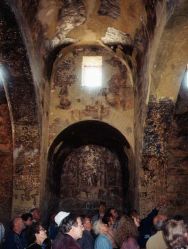 Now we come to the "Zitatelle" with the temple of the Hercules and further across the street at the opposite hill to the Al-Qasr, a medieval complex which is dug up at present.
Now we come to the "Zitatelle" with the temple of the Hercules and further across the street at the opposite hill to the Al-Qasr, a medieval complex which is dug up at present.
Our way leads us to the Malik Abdallah mosque. It is governed by two uniform minarets and a gigantic, blue dome.
We drive by bus to the "desert castles" which were built for the caliphs in the 8th century as places of residence and hunting lodges through meager landscapes. The Qasr Al Hallabat which was built of bright sandstone and basalt is only a ruin. The Qasr Al Azraq served legendary "Lawrence of Arabia" as accommodation. From here he organized the resistance and the battle of Akaba.
We see impressive frescos and mural paintings in the Qusayr Amra (little castle). It was presumably built of the caliph Al-Walid. It was used as a relaxation and entertainment place.
Qasr Al Kharana rises on a ledge. It is still controversial, whether this castle was set up for the defense because the narrow embrasures are laid out quite exceptionally anyway.
Jerash is our aim the next day. One also calls it Gerasa. This ancient town belongs to the biggest and the best and complete received Roman provincial towns of the world. It is called the Pompeji of the Middle East and the town of the one thousand columns.
On the tour one can imagine how the life pulsated here in front of hundreds of years. Butcher's shops, thermal springs and store business are situated at the main street. A gigantic forum and a theater show the cultural life of this time. A broad plaster street runs 900 meters until the north gate. The name is "Cardo maximus".
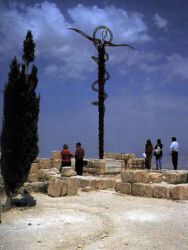
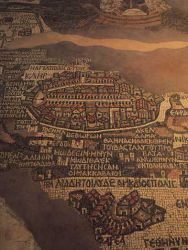
The next day leads us to Madaba. We look at a map of Palestine laid out as a floor mosaic which served the pilgrims as a guide in the Greek orthodox church.
We reach the mountain Nebo across bendy streets in 800 m of height. According to the Bible this is the mountain of which the praised country saw from Moses. He also shall be buried here. The look goes far over the Jordan valley up to the dead sea and to Israel.
Inside, the cloister admires lovely mosaic work.
On the continuation of the journey we suddenly stand in front of a deep valley. The Wadi Mujib or grand Cannon of Jordan separated the people of the Ammoniter and the Moabiter from each other in earlier time.
We drive on to the crusader fortress Kerak over the king street. This was built by crusaders and taken by the arabs and further improved later in the 12th century.
We approach the highlight of our journey now. Petra, the "red town" of the Nabatäer, is a town fascinating, chiseled from the new red sandstone.
After a restful night in Petra we go to the Siq, the entrance to the rock town, in the morning. We wander through a narrow, deep ravine which could be defended excellently. After an inflection we see unexpectedly the "treasure house", Petra's most famous monument.
In front of itself, it is already very impressive to see the 40 meters high and 28 meters wide façade which was hit completely from the rock and looks always very well.
On the right of the treasure house the ravine then gets broader again and a natural arena opens. We passes by the theater across the "street of the façades" which offers 3000 visitors place.
We hike further across a street surfaced well. The ascent to the Deir (cloister) is arduous. One is compensated by a lovely landscape through which one has to stride. The Deir is presumably a temple which was dedicated to the King Obodas and is hit to the rock face. A gigantic room has been hammered out with an outstanding acoustics inside.
Unfortunately, the day is too short to find out all sights of this impressive plant.
We went from Petra to Aqaba. On the way there we make an excursion to "Wadi rum" the home of the Bedouins. It is framed by reddish brown, rugged rocks.
We continue by the desert with jeeps where we go to the desert police. The Fort with his watch-towers and whitewashed walls works as a romantic setting for a movie. We make a picnic in this scenery which already served many movies as a background, before we begin the continuation of the journey to Aqaba.
Aqaba is Jordan's only port, located by the red sea directly besides the Israeli Eilat. Dealers offer their goods for sale in the bazaar streets. The red sea invites us with its warm, clear water for bathing and snorkeling.
The last days we stay in Ma´in before we return home. By the hot sources it is known already for centuries. King Herodes shall already have taken a bath here 2000 years ago.
After three days of relaxation we return to Amman for our flight home from this fascinating part of the Orient.
